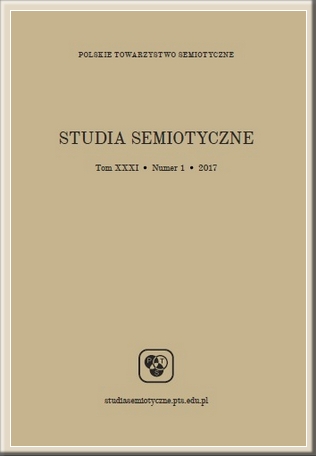Abstract
DOI: http://doi.org/10.26333/sts.xxxi1.07
In Kripke-semantics for modal logic, the truth value of a sentence depends on the choice of a semantic index (e.g. world, time, or place). It means that application of such semantics to natural language analysis requires indication of an index relevant for semantic analysis. It is commonly accepted that the relevant index is initialized by the context of an utterance. The idea has been rejected by the semanticists investigating tempo-modal languages in the framework of indeterminism what generated the problem of initialization of the semantic index. I present the main argument of those semanticists and describe several responses to the initialization problem. I finally argue that under certain metaphysical and semantic assumptions, one can respond to the initialization failure in the classical way, even in indeterministic contexts.
References
Adams, R. M. (1974), Theories of Actuality, „Noûs” 8(3), s. 211–231
Belnap, N. (2002), Double Time References: Speech-Act Reports as Modalities in an Indeterminist Setting, w: D. Wolter, H. Wansing, M. de Rijke, M. Zakharyaschev (eds.), Advances in Modal Logic, vol. 3, Singapore: World Scientific, s. 37–58
Belnap, N., Perlo, M., Xu, M. (2001), Facing the Future: Agents and Choices in Our Indeterministic World, New York: Oxford University Press.
van Fraassen, B.C. (1966), Singular Terms, Truth-Value Gaps, and Free Logic, „Journal of Philosophy” 63(17), s. 481–495
Kaplan, D. (1989), Afterthoughts, w: J. Almong, J. Perry, H. Wettstein (ed.), Themes from Kaplan, New York: Oxford University Press, s. 565–614
King, J.C. (2003), Tense, Modality, and Semantic Values, „Philosophical Perspectives” 17(1), s. 195–246
Kotarbiński, T. (1913), Zagadnienie istnienia przyszłości, „Przegląd Filozoficzny” 16(1), s. 74–92
Kripke, S. (1980), Naming and Necessity, Cambridge, Mass.: Harvard University Press
Leśniewski, S. (1913), Czy prawda jest tylko wieczna czy też odwieczna, „Nowe Tory” 10, s. 493–528
Lewis, D. (1970), Anselm and Actuality, „Noûs”, 4(2), s. 175–188
Lewis, D. (1986), On the Plurality of Worlds, Oxford: Blackwell Publishers
Łukasiewicz, J. (1957), Aristotle’s Syllogistic from the Standpoint of Modern Formal Logic, Oxford: Oxford University Press, 2nd edition
Łukasiewicz, J. (1961), O determinizmie, w: tenże, Z zagadnień logiki i filozofii, red. J. Słupecki, Warszawa: PWN, s. 114–126
MacFarlane, J. (2003), Future Contingents and Relative Truth, „The Philosophical Quarterly” 53(212), s. 321–336
MacFarlane, J. (2008), Truth in the Garden of Forking Paths, w: M. García-Carpintero, M. Kölbel (ed.), Relative Truth, Oxford: Oxford University Press, s. 81–102
MacFarlane, J. (2014), Assessment Sensitivity: Relative Truth and Its Applications, Oxford: Clarendon Press
Plantinga, A. (1974), The Nature of Necessity, New York: Oxford University Press
Ploug, T. i Øhrstrøm, P. (2012), Branching Time, Indeterminism and Tense Logic, „Synthese” 188(3), s. 367–379
Prior, A. (1966), Postulates for Tense-Logic, „American Philosophical Quarterly” 3(2), s. 153–161
Prior, A. (1967), Past, Present and Future, Oxford: Clarendon Press
Stalnaker, R. (1976), Possible Worlds, „Noûs” 10, s. 65–75
Thomason, R. H. (1970), Indeterminist Time and Truth-Value Gaps, „Theoria” 36, s. 264–281
Thomason, R. H. (1984), Combinations of Tense and Modality, w: D. Gabbay i F. Guenthner (ed.), Handbook of Philosophical Logic, vol. 2. Dordrecht: D. Reidel Publishing Company
Twardowski, K. (1900), O tzw. prawdach względnych, w: Księga Pamiątkowa Uniwersytetu Lwowskiego ku uczczeniu pięćsetnej rocznicy Fundacji Jagiellońskiej, Uniwersytet Lwowski, s. 64–93
Wawer, J. (2014), The Truth about the Future, „Erkenntnis” 79, s. 365–401
Wawer, J. (2016), Branching Time and the Semantics of Future Contingents, dysertacja doktorska, Uniwersytet Jagielloński, Kraków
Woleński, J. (1990), Kotarbiński, Many-Valued Logic, and Truth, w: J. Woleński (ed.), Kotarbiński: Logic, Semantics and Ontology, Dordrecht: Kluwer Academic Publishers, s. 191–198.

